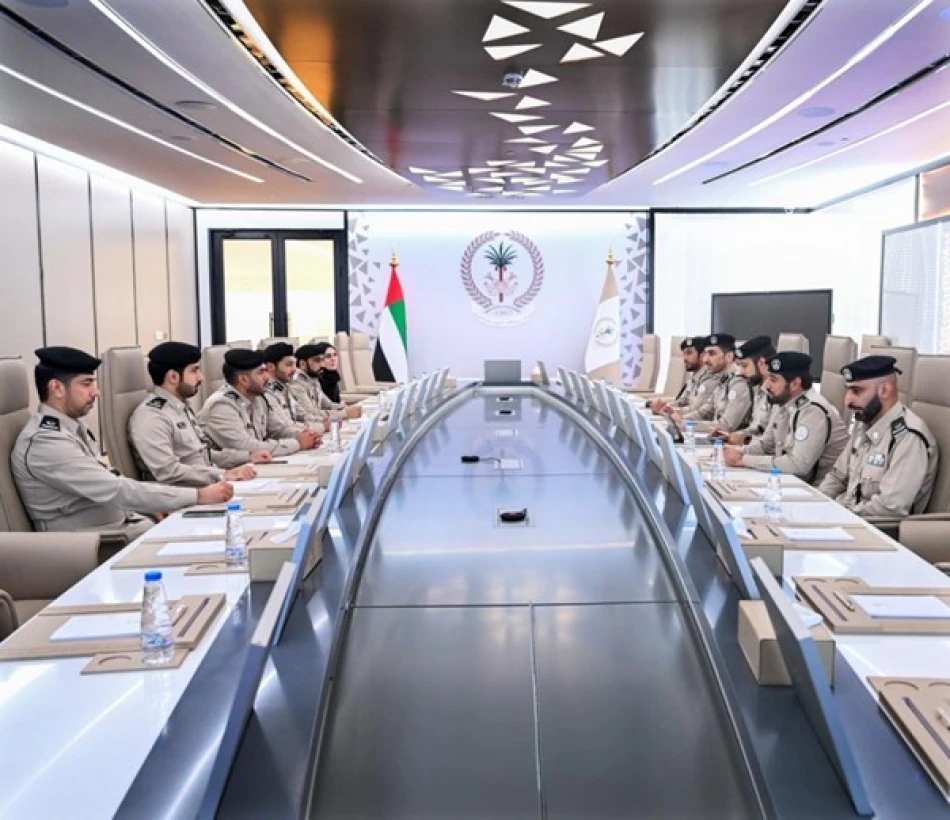
Sharjah Police Primed for New Academic Year: Ensuring a Seamless Back-to-School Experience
Sharjah Police Deploy 98 Traffic Patrols and Mobile Command Center for School Safety Campaign
Sharjah Police have unveiled an ambitious school safety initiative featuring 98 dedicated traffic patrols, a mobile operations room, and real-time bus tracking technology as students prepare to return for the 2025-2026 academic year. The comprehensive "Our First Lesson is Safety" campaign represents a significant escalation in the UAE's efforts to modernize school zone security and traffic management.
Technology-Driven Traffic Management
The centerpiece of Sharjah's new approach is a mobile operations room that will broadcast live traffic conditions around schools during peak hours. Colonel Mohammed Al Shamsi, Director of Operations Center Management, emphasized that this real-time monitoring system will enable immediate response to congestion and safety incidents.
The initiative also activates the "Maamen" platform, developed in partnership with the Sharjah Private Education Authority. This digital system will handle emergency reports related to student affairs while providing precise tracking of school bus movements—a feature that addresses growing parental concerns about transportation safety in the rapidly expanding emirate.
Strategic Resource Deployment
Lieutenant Colonel Omar Al Aqroubi revealed that the 98 traffic patrols will be strategically distributed across Sharjah city, the Eastern Region, and the Central Region based on traffic density analysis. This data-driven deployment marks a shift from traditional uniform coverage to targeted intervention in high-risk areas.
Focus on Critical Infrastructure
The patrols will concentrate on school perimeters and vital intersections, reflecting lessons learned from traffic incidents in other Gulf states. The UAE's approach mirrors successful models in Singapore and parts of the United States, where dedicated school zone enforcement has significantly reduced accident rates.
Multi-Generational Awareness Campaign
Colonel Abdul Rahman Khater, Deputy Director of Security Media Management, outlined plans for age-appropriate safety content delivered through visual and audio materials, digital designs, and interactive social media campaigns. This multimedia approach recognizes that traditional safety messaging often fails to resonate with younger generations accustomed to digital communication.
Major Hussein Al Balushi announced that specialized community patrol teams will conduct field awareness visits to schools, implementing interactive materials and educational activities designed to embed safety concepts among students and teaching staff.
Regional Context and Implications
Sharjah's comprehensive safety initiative comes as UAE emirates increasingly compete to offer world-class educational environments to attract international families and businesses. The emirate's investment in school safety technology positions it alongside Dubai and Abu Dhabi in embracing smart city solutions for public safety challenges.
The emphasis on school bus safety particularly resonates in a region where rapid urban development has created complex traffic patterns around educational facilities. Similar challenges have prompted safety overhauls in Qatar and Saudi Arabia, though Sharjah's integrated technology platform appears more advanced than regional competitors.
Implementation Timeline and Community Engagement
The campaign launches with the new academic year, requiring immediate coordination between police departments, education authorities, and private school operators. The success of this initiative could serve as a model for other emirates and Gulf states grappling with similar urban safety challenges.
Sharjah Police leadership stressed that student safety represents their highest priority while calling for community-wide cooperation to ensure the campaign's effectiveness. This collaborative approach reflects growing recognition that modern urban safety requires partnership between government agencies, educational institutions, and residents rather than top-down enforcement alone.
Most Viewed News

 Layla Al Mansoori
Layla Al Mansoori






